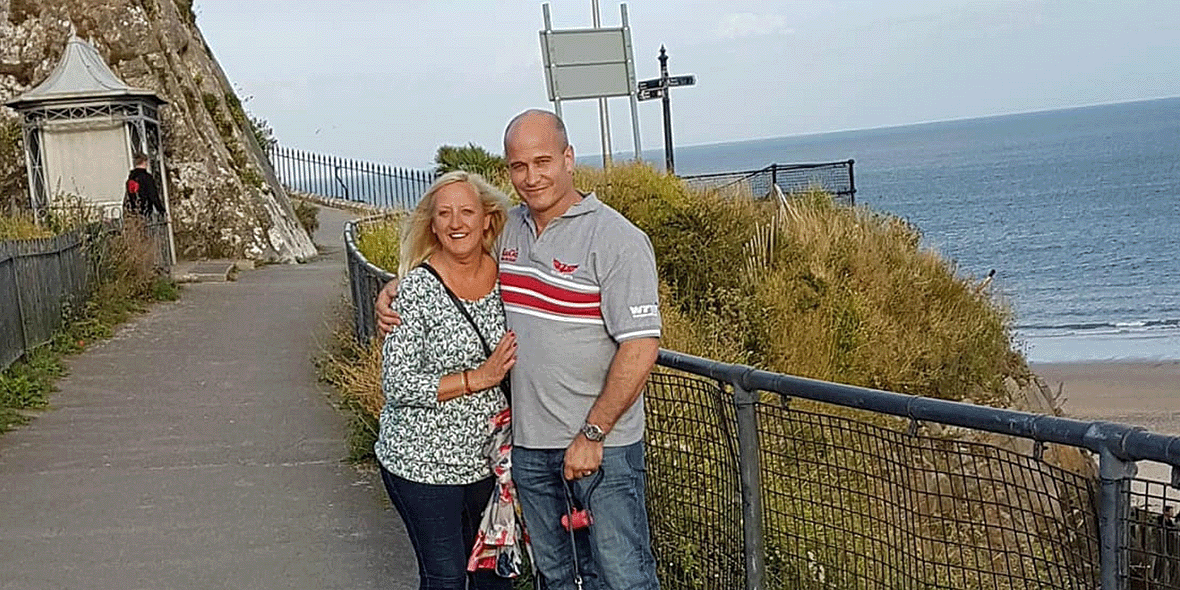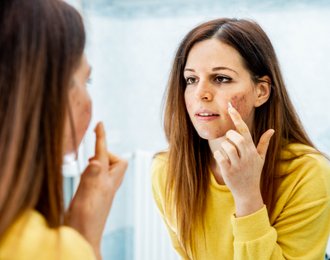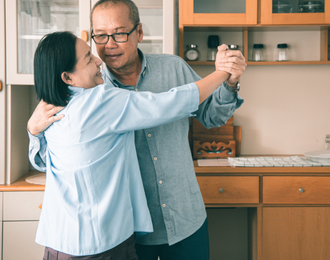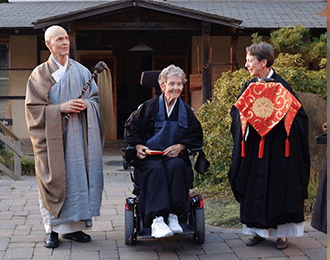Debbie’s story: ‘Not enough people are aware of early-onset dementia, never mind understand it’

At 50 years old, Debbie was told that she had mixed dementia. Following her diagnosis, the stigma surrounding dementia has had a significant impact on her life. But Debbie believes people’s attitudes towards people affected by dementia can be changed.
Alzheimer’s Society July 2021
I’m Debbie, I’m 51 years old, and I live in Caerphilly in Wales. Married to Steve, we have three children and enjoy going on family holidays. We like entertaining friends, going to shows and having fun!
Leading up to my 40th birthday, I found myself becoming increasingly stressed and tired. I was working full-time in a secondary school and trying to look after my family. Steve was working long shifts as a police officer.
I believe the stress and tiredness were partly why I had a series of TIAs (transient ischemic attacks, or ‘mini strokes’). It was around that time that I spent three weeks in hospital where I was prescribed statins and aspirin.

The first signs of dementia
In more recent years, I started to become increasingly tired and unable to think and process as I once had. People started to notice that I wasn’t as organised and couldn’t remember things that had once come so easily to me.
Many people said that I had lost my spark!
Life outside work also became a challenge. I would get lost driving or walking to the local shop and I would get confused cooking basic meals.
On one occasion, whilst shopping with my sister, I went into the changing room to try some clothes on. When I had finished, I left with only my top on and handbag on my shoulder – I had forgotten to put my trousers on! My family were becoming increasingly concerned.
A surprising diagnosis
One morning, I was in work and a colleague asked me a simple question. I became confused in the classroom and left. I was found by another colleague, walking about in the corridor, not knowing where I was or recognising who my colleague was.
Steve was called, who immediately took me to the GP. I was referred as an urgent case to the memory clinic. I received a series of memory tests and scans within a matter of weeks.
After several months of my family and I thinking of every possibility, I finally received a diagnosis. I was 50 years old and I was told that I had atypical primary progressive aphasia (PPA), or ‘mixed dementia’.
Sadly, on my consultant’s advice, I had to retire from work. After 22 years doing a job that I loved, this was so difficult for me. We’re also in the process of downsizing to a smaller house, as I was becoming confused with there being so many rooms in our current home.
Stigma in public
Following my diagnosis, stigma around dementia has had a significant impact on my life. I used to love shopping but nowadays I find it’s just too stressful and upsetting.
Here are some instances when I have felt the impact of stigma:
- In a supermarket queue, I’ve been asked why it’s taking me so long to decide how many bags I need. A cashier once said, “If it takes you this long to decide how many bags you need, then God help you!”
- I’ve been asked if I was drunk when trying to order tickets, as I was slurring my words.
- I regularly forget my pin number which has resulted in people ‘tutting’ in the queue, and occasionally frustrated managers being called over.
- When I’ve told people that I have dementia, they have often thought it was a joke and have laughed and responded with, “Yes me too”, whilst laughing.
People regularly say to me that I can’t have dementia as I am too young.
- People have been offended and upset when I’ve forgotten their names, walked past them or confused them with someone else.
- I’ve been made to feel like a criminal when I have forgotten to pay for things in a shop. Even when I have gone back to pay once I have remembered or been reminded and explained that I have dementia.
- When I’ve asked staff to speak slowly or told them that I haven’t understood something, they’ve become impatient. They have not always been understanding and haven’t always listened.
- When speaking with reception at a GP appointment, I was told that I needed to check-in using their new computer system on the wall. I attempted to do so, but became very confused as it was new to me. The receptionist asked my daughter to take over. This was very frustrating for me as I wanted to check-in with the receptionist myself, as I always had done. I knew this was something I was capable of doing and I didn’t want to lose this independence.
How we can fight the stigma
I honestly believe that we can make a difference to people’s attitudes towards those of us with dementia.
Many of us want to keep our independence for as long as we can, we want to enjoy life and not be worrying about what people are thinking of us.
Simple changes to attitudes and understanding of the condition can make a huge difference to our day-to-day living.
I don’t feel that enough people are aware of early-onset dementia, never mind understand it. Some people are too quick to stereotype!
I’m sure that there will come a time when we all need a little bit of help from others; for some of us this has just come earlier than expected.






